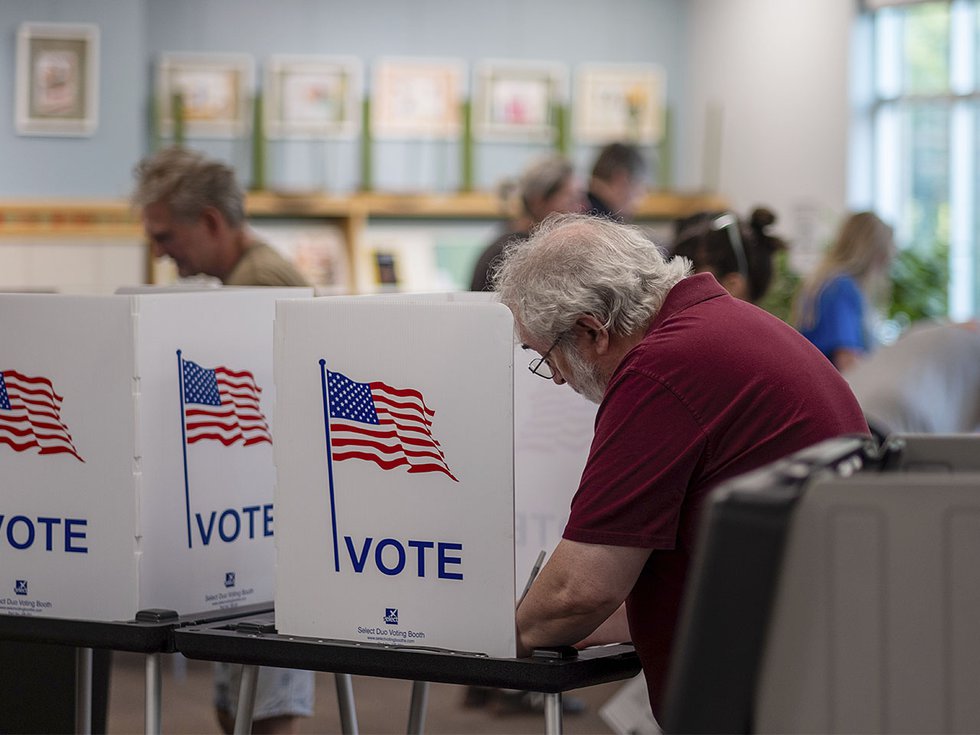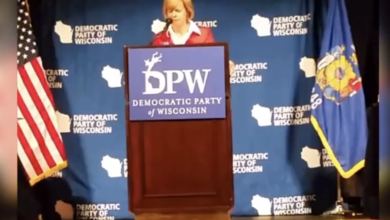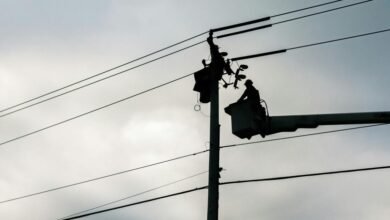Voters reject Wisconsin constitutional amendments – Isthmus


Wisconsin voters on Tuesday rejected two state constitutional amendments which would have given the legislature greater control over federal funding. The No campaign, supported by Gov. Tony Evers and his Democratic allies, successfully argued that the measures amounted to a Republican power grab, which would slow critical aid.
“This is a resounding rejection of the political games that are so often perpetrated on the people of Wisconsin by the majority party in the legislature,” Seth Hoffmeister, deputy director of Wisconsin Conservation Voters, said in a statement. “Voters have had enough.”
The propositions were overwhelmingly defeated in Dane County, with 83% of voters voting against the amendments.
The two amendments concerned the allocation process for federal dollars, which became a point of debate after an influx of cash reached Wisconsin in COVID-19 relief packages. Evers exercised broad powers in delegating the money, saying the funds belonged to “the people of Wisconsin, not Republican legislators.” Under current law, the governor is allowed to accept and distribute specific federal funding without consulting lawmakers.
In 2021, the Republican-controlled legislature passed a bill along party lines that would have wrestled away sole control of the $4 billion in funds from the governor’s office. The proposal would have made him accountable to the legislature’s powerful Joint Committee on Finance, but was ultimately vetoed.
Advocates for the proposal wanted greater transparency in the allocation process. In a statement, the Wisconsin Institute for Law and Liberty (WILL) said passage of the amendment would “provide a necessary check” on the executive branch and would “solidify” the separation of powers.
Meanwhile, opponents of the proposal said in a joint letter that the amendments would “impact the process for distributing federal money by adding unnecessary red tape and slowing funds to those in urgent need.”
The constitutional amendment process has been used by Republicans to circumvent Evers’ veto, which he has used over 220 times since taking office in 2019. Proposed constitutional amendments must be approved by a majority of the state legislature in two successive sessions before going to the voters. They do not require the governor’s approval to appear on the ballot or take effect.
Republicans have voted to send seven constitutional amendments to state voters over the last two years, the most constitutional activity in 40 years.
Requests for comments from State Senate Majority Leader Devin LeMahieu, R-Oostburg, and Wisconsin Institute for Law and Liberty president Rick Esenberg, supporters of Tuesday night’s proposal, went unanswered.
In a statement released on X, Evers framed the amendments’ failure to pass as “a referendum on our administration’s work and the future for Wisconsin we’ve been working hard to build together,” saying that “the answer is reflected in the people’s vote tonight.”
The first question on Tuesday’s ballot asked voters if the state Constitution should be amended “to provide that the Legislature may not delegate its sole power to determine how moneys shall be appropriated.” While the second question asked about prohibiting “the governor from allocating any federal moneys the governor accepts on behalf of the state without the approval of the Legislature by joint resolution.”
In their statement, Wisconsin Conservation Voters declare that “Once explained clearly, Wisconsin voters understood that these attempts were yet another power grab by politicians and their special interest backers.”
The proposed amendments, which experts say would have reinforced each other to reach the same goal, were defeated by roughly identical margins across the state, drawing their greatest support in traditional Republican strongholds such as suburban and exurban Milwaukee, and rural counties in the northwest.




